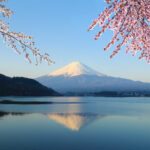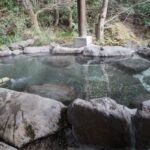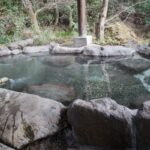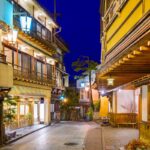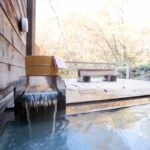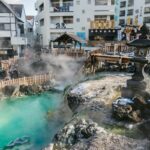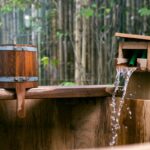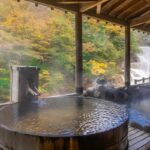You may have heard the words ‘onsen’ and ‘ryokan’ thrown around a few times. While you may understand that hot springs are related to both somehow, you may not realize the full differences.
The major difference between ryokan and onsen is that the latter does not have a place for you to stay overnight. Ryokan, otherwise known as a traditional Japanese inn, also does not always have onsen bathing facilities.
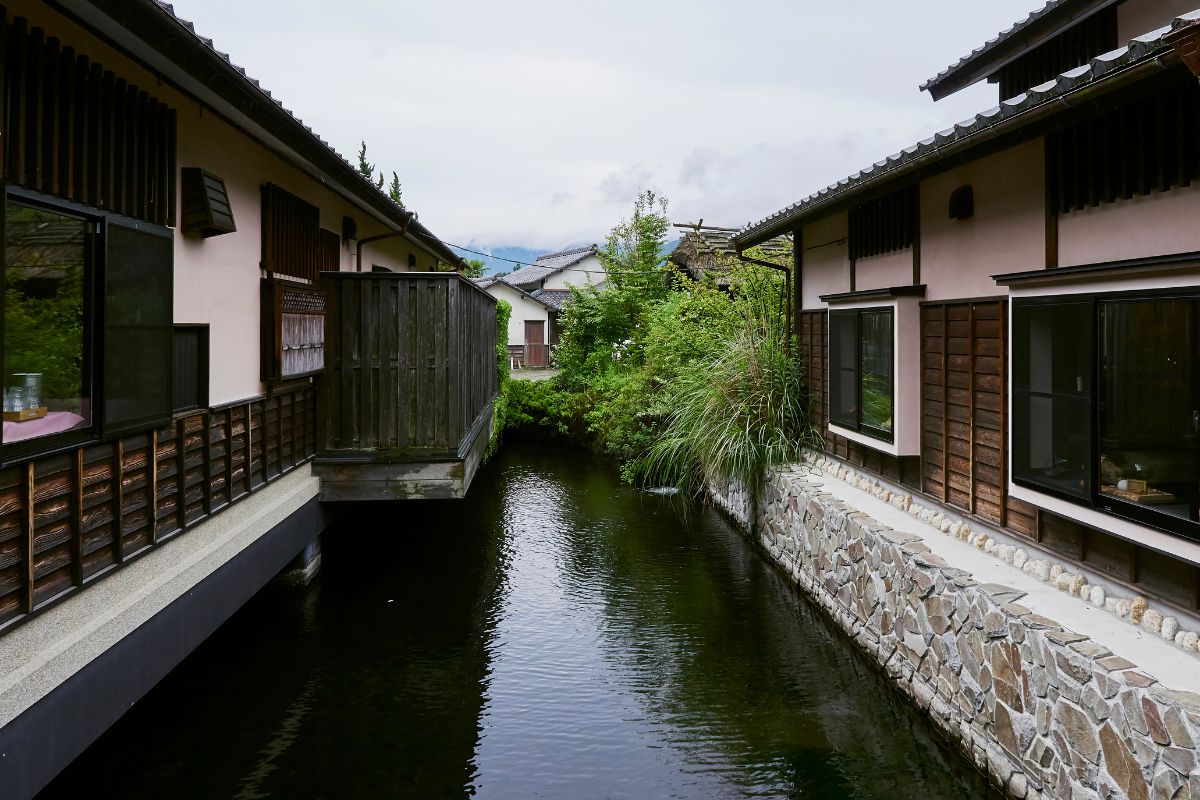
Despite these reasons, they are often confused with each other. Even so, it is not as cut and dry as that.
For this reason, we will need to delve into the subject even further. So if you’re interested to know the major differences between ryokan and onsen, then read on.
What Actually Is A Ryokan?
A ryokan is known as being one of the oldest forms of hotel, and originates in Japan. While they do sometimes offer onsen bathing facilities, this is not always the case. Also, the water is not always from a hot spring either.
This traditional Japanese inn has a few features which define it. One example is the tatami mats when sleeping. Also the fact that guests can walk around in communal areas dressed in yukatas.
Yukatas look just like a regular kimono to the untrained eye. However, while they are often worn in the summer at traditional Japanese festivals, they are considered to be a bathrobe too.
They are thinner and have no lining. They are also made using cotton which allows moisture to evaporate much quicker. Hence why they are worn after bathing.
What Actually Is An Onsen?
An onsen generally refers to a hot spring. In Japan, they can be found all over the country and its many small islands.
An onsen is often available to be used in an inn or hotel. Onsen can also be used privately or publicly in dedicated spaces. These spaces are known as onsen.
People enjoy using onsen because they are relaxing. They also provide a space for many locals to have their daily bath in mineral rich natural spring water. Many people believe that this water can aid in good skin health.
While an onsen may look artificial and man made, what makes it an onsen is the fact the water is natural spring water.
However, the major difference between an onsen and ryokan is that the former does not offer a place to stay the night.
It is purely used for bathing reasons. You also cannot wear clothes while in the onsen – that means no yukatas allowed.
What Are The Main Differences Between Ryokan And Onsen?
There really is only one main difference between a ryokan and onsen. This is that you can stay overnight at a ryokan, while you cannot at an onsen.
Another is that a ryokan may or may not have onsen bathing facilities. Some may use natural spring water, while others may not. An onsen uses spring water as its main feature.
An onsen also always has spring water bathing facilities. This is because an onsen is practically all about the natural spring water. Without it, it isn’t an onsen.
Does Every Onsen Have A Ryokan?
Onsen do not tend to have a ryokan. In other words, they do not usually have a place you can stay for the night.
However, some ryokan do have an onsen, but we will look at that next. When it comes to onsen, it is usually for bathing use only. People visit, spend time bathing, and then leave to go home.
Travelers love going to an onsen to experience this traditional Japanese way of bathing. The natural spring water is also said to have a lot of benefits for the skin.
Is There An Onsen At A Ryokan?
Most of the ryokans across Japan have some form of bathing space, but they are not necessarily an onsen. Not all ryokan use natural spring water, and if they don’t, then it cannot be considered an onsen.
However, if the ryokan you are looking to stay at doesn’t have an onsen, no doubt there will be one nearby.
As we have already stated, guests often wear a yukata at a ryokan. This can also happen when the ryokan does not even have any form of bathing facilities.
So, don’t be surprised if you still get to enjoy this traditional Japanese experience.
Is A Sento The Same As An Onsen?
No, a sento is different from an onsen. While a lot of cities in Japan have a sento, an onsen is supplied with natural spring water. They are also based in areas close to volcanic activity.
Sento on the other hand has water supplied to it artificially. This makes it very different from a wonderful onsen. An onsen also has lots of mineral goodness in the water.
People specifically bathe in an onsen for this reason.
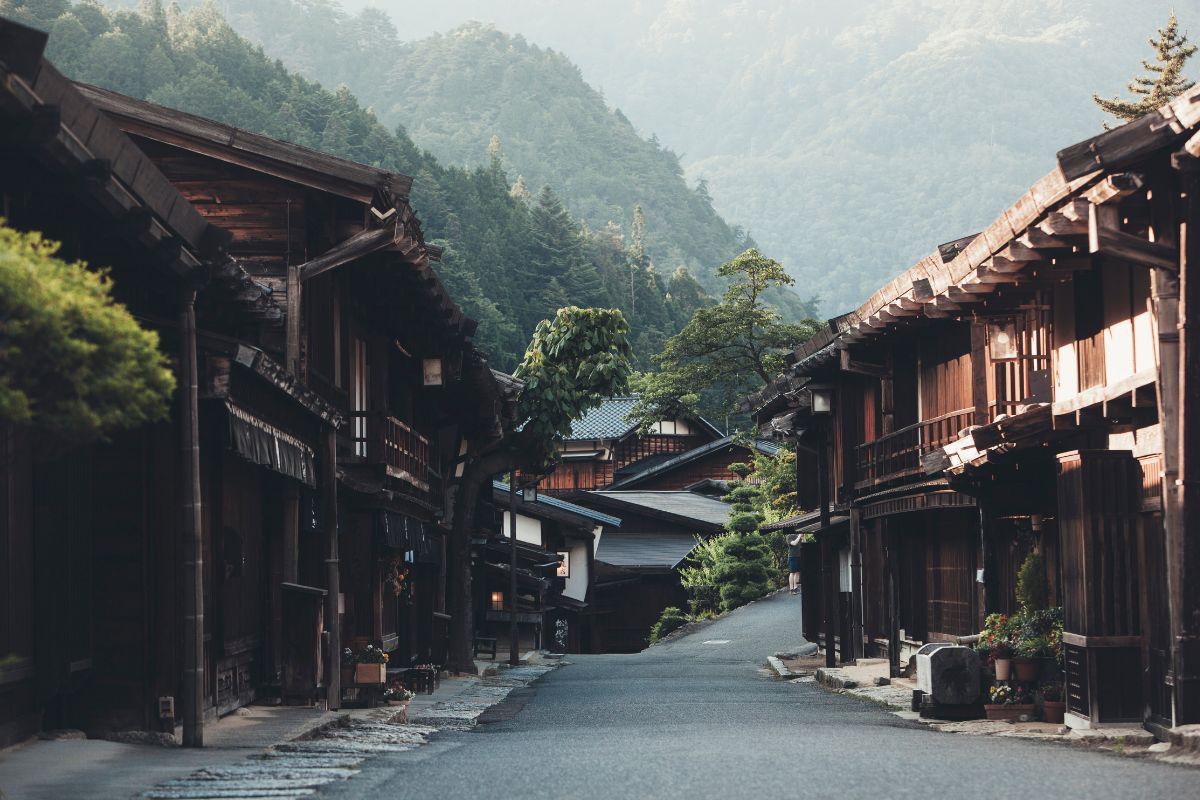
Should You Stay In A Ryokan As A Foreign Traveler?
Staying in a ryokan is often a once in a lifetime experience. While it does often cost more than a basic hotel, it gives you a taste of Japanese culture.
While the cost of the night will not give you room service or a high-end experience, it will have you talking about it for years to come. You will get the chance to sleep on a futon upon tatami mat flooring.
You may also get to enjoy bathing in the in-house onsen or bath water. Not only this, you will also have some great photos from the trip.
Do remember that if you are planning to enjoy an onsen, the rules state that you should be naked. While some mixed-gender onsen may allow bathing suits, this isn’t always the case.
Also, if you have large tattoos, you may want to cover them up or avoid onsen altogether. This is something that is not allowed in a lot of onsen.
However, some onsen are relaxing the rules. Even so, this is usually if the tattoos are small and can be covered.
If in doubt, always ask beforehand. You don’t want to feel disappointed if you are the only one out of the group not in the onsen.
Final Thoughts
As a foreigner traveling to Japan, it is easy to become confused sometimes. This is especially true when words are used that often mean a similar thing.
Ryokan and onsen are sometimes used interchangeably, despite them both meaning something different. While they both have places to bathe, this isn’t always the case with a ryokan.
Ryokan is a traditional Japanese inn that provides a place for you to stay the night. It is steeped in Japanese tradition, so don’t expect a modern and sleek hotel.
Ryokan may also offer bathing opportunities. However, while some do use natural spring water, some just use regular water. When a ryokan doesn’t have any water to bathe in, there is normally an onsen nearby.
On the other hand, an onsen is any place that has natural spring water available to bathe in. The major difference between an onsen and a ryokan is that you cannot stay the night at an onsen.
Now that has been explained, hopefully you understand the differences between ryokan and onsen.
- 16 Best Websites To Watch Japanese Movies With English Subtitles - May 11, 2023
- Is ZIPAIR The Best Airline For Traveling To Japan? - May 11, 2023
- Ryu Murakami Vs Haruki Murakami – Which One Should You Read? - May 11, 2023

